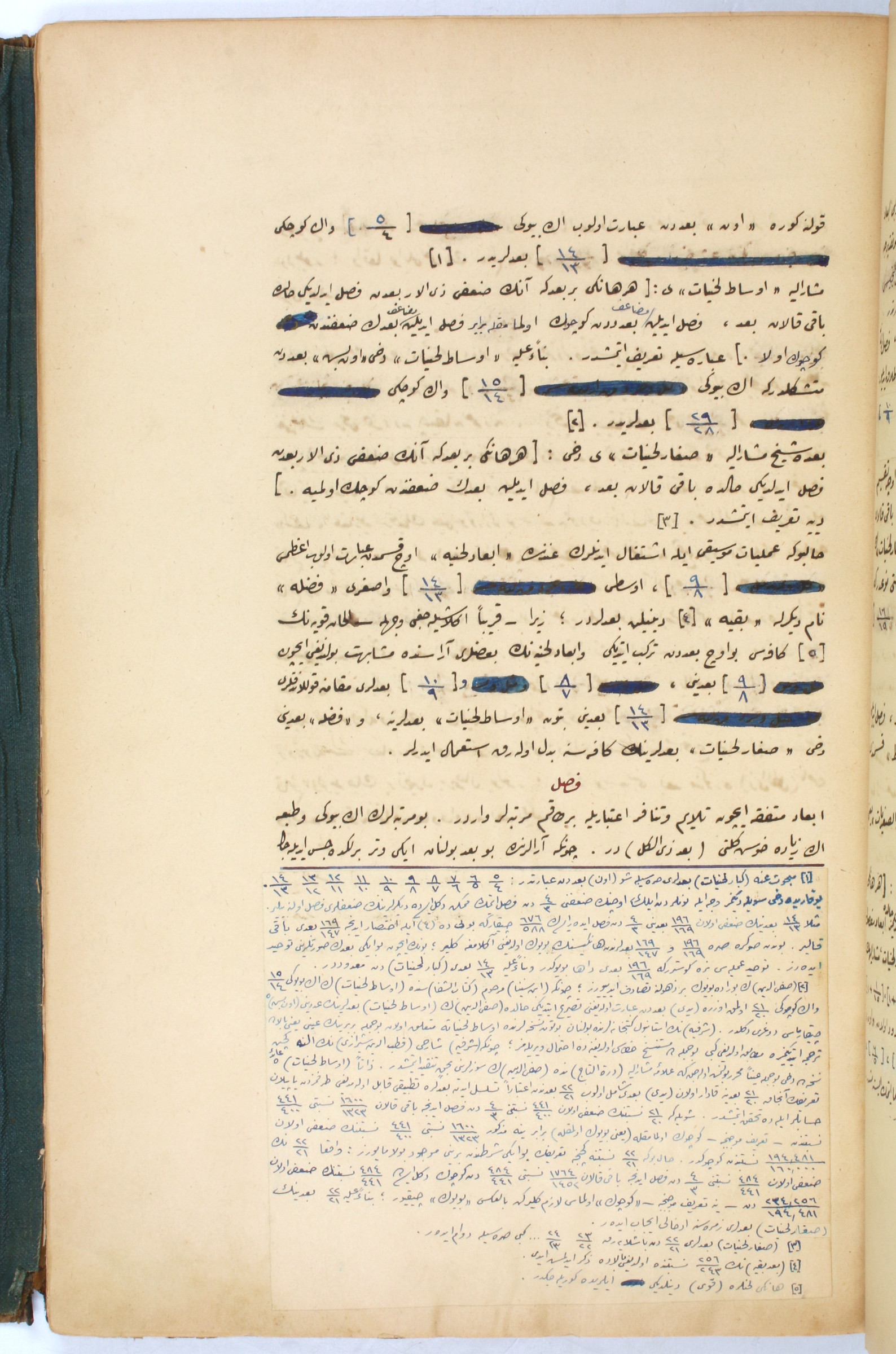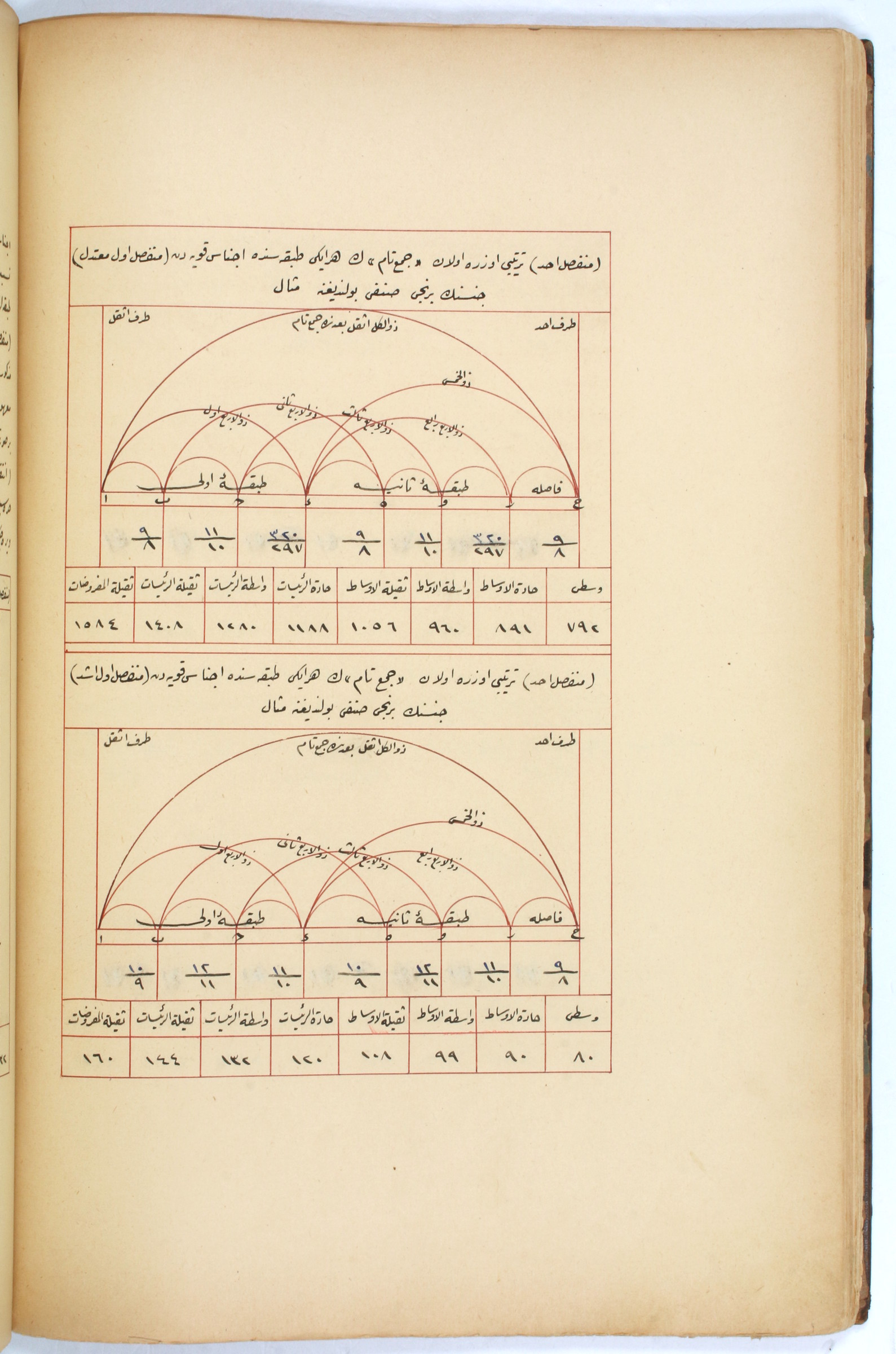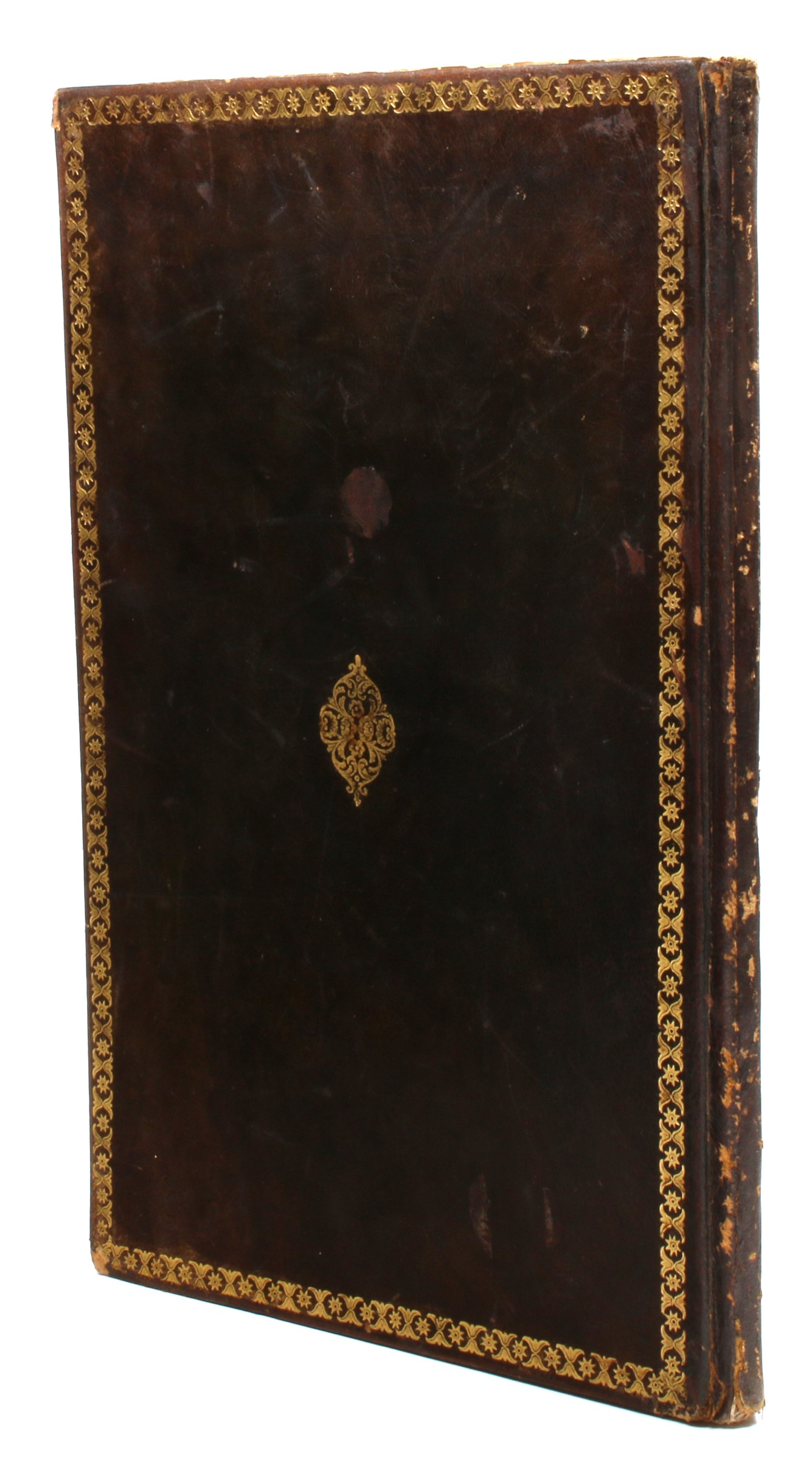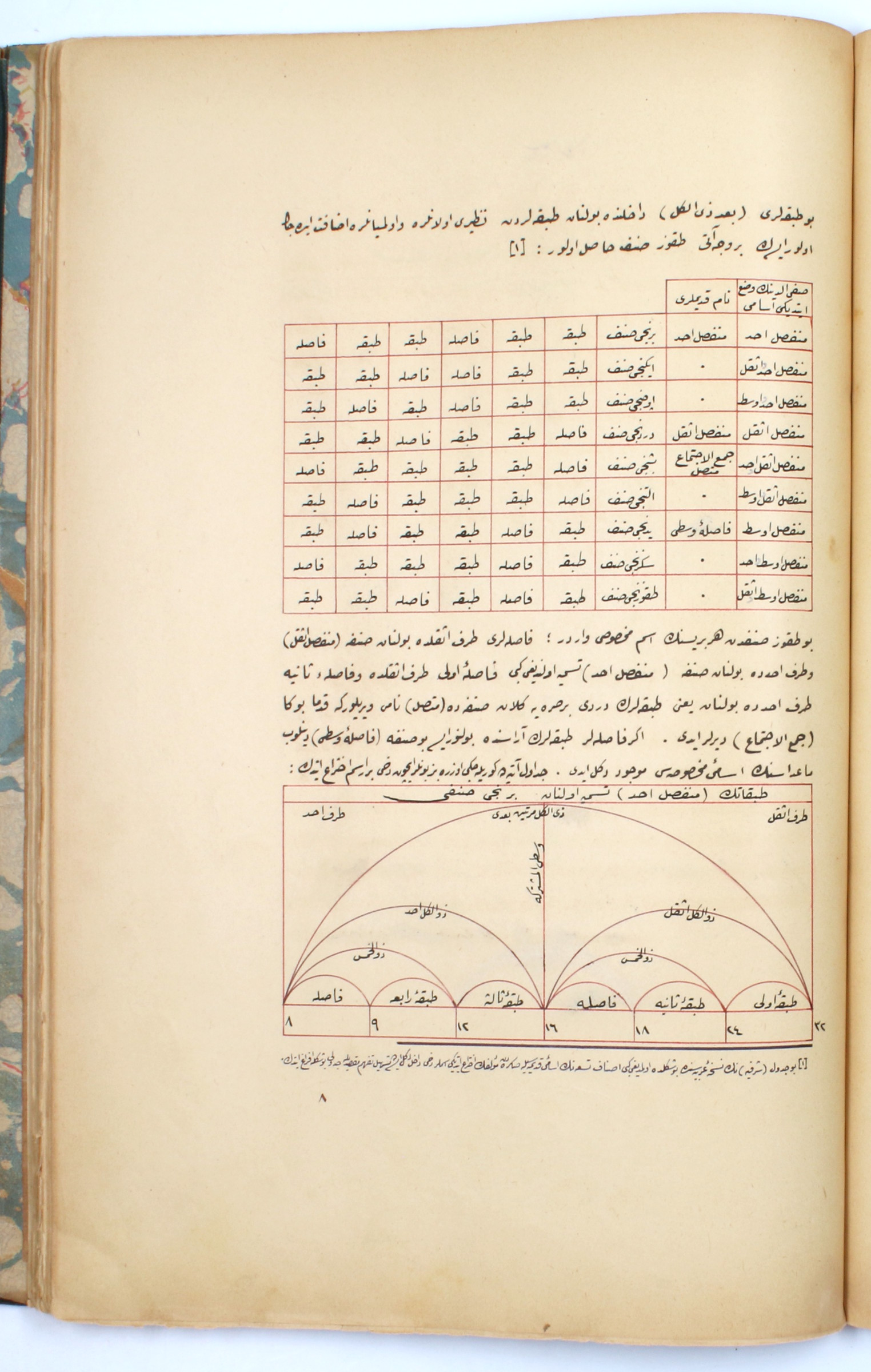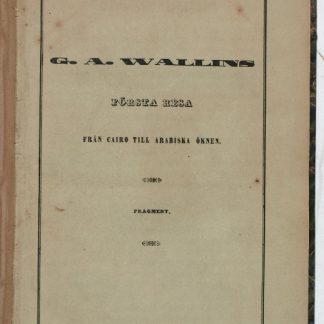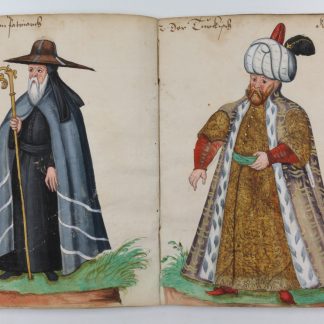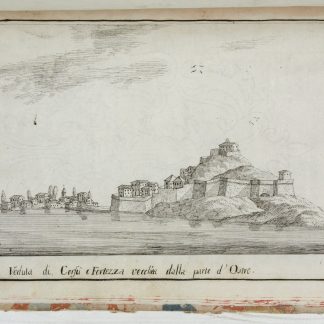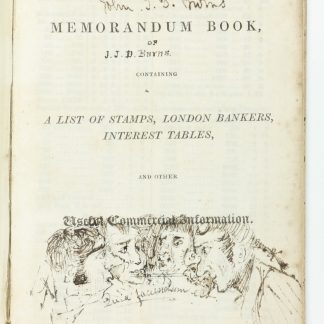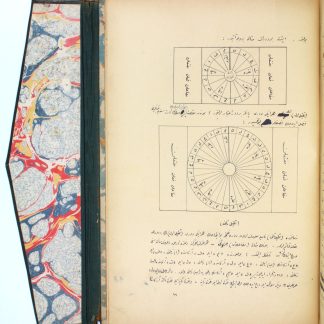A Turkish musicologist's translation of Al-Risalah al Sharafiyyah
[Al-Risalah al Sharafiyyah fi Nisab al-ta ‘lifiyyah - turcice.] Er-Risâletü’s-Serefiyye fi’n-nisebi’t-te'lîfiyye.
Folio (350 x 230 mm). 64 ff. Ottoman Turkish manuscript (with occasional sentences in French, Greek and Arabic) on paper. Black and blue naskh script in 27 lines with titles and some keywords in red, marginal commentaries, extensive explanatory footnotes. 23 full-page tables, numerous in-text tables and diagrams in red, 2 pages of uncompleted music notation. 10 pages of blank tables, not completed. Contemporary brown morocco binding with fore-edge flap ruled and stamped in gilt, marbled endpapers.
€ 18,000.00
An expanded working copy and translation, by a Turkish musicologist, of al-Urmawi's acclaimed music theory book "Al-Risalah al Sharafiyyah fi Nisab al-ta‘lifiyyah" (The Sharafiya Treatise on Musical Conformities in Composition). The present text covers all five chapters of the original work with tables and diagrams; extensive marginalia and footnotes show it was translated by a person with a solid knowledge of traditional Ottoman and western music and of al-Urmawi's works. It has been speculated that the book was translated by musician and music teacher Rauf Yekta Bey in the early 20th century; no other translation in Ottoman Turkish is known (Arslan, p. 268).
Born in Baghdad in the early 13th century, Safi al-Din al-Urmawi is known as one of the greatest music theorists of eastern music. He wrote two books on music theory: his first, "Kitab al-Adwar", written for the last 'Abbasid caliph al-Musta'sim (r. 1242-58) with the advice of Nasîrüddîn-i Tûsî, was an attempt to systematise Arabic music, the form of which was largely derived from the nature of the oud. His second book, "Al-Risalah al Sharafiyyah", written ca. 1267-68, focuses on the same themes and is considered an extended version of the previous work. The title refers to al-Urmawi's patron, Sharaf al-Din Harun Juwayni. In the introduction, he explains that he based his book on the works of the ancient Greeks, to which he added information not included in the works of later scholars. His debt to Greek musical theory is greater in this work, possibly due to his association with Nasir al-Din Tusi, the polyglot mathematician, philosopher and vizier to Ilkhan Hulegu. Both of al-Urmawi’s works quickly became classics, particularly in the Islamic World, being the major sources for the maqams, or modes which govern Arabic music.
(1) Sam Fogg, London, acquired in 2005 by: (2) Schoyen Collection, MS 5279.
Light wear to the spine and flap, front endpaper is missing, occasional foxing and ink smears, some edge tears (not touching the text). The translator pasted marginalia, footnotes, and corrections in his handwriting.
Fazli Arslan, "Safiyyüddîn Abdülmümin El-Urmevî’nin Er-Risâletü’s-Serefiyye’sinde Mûsikî Matematigi", Ankara Üniversitesi Ilahiyat Fakültesi Dergisi 46, sy. 2 (Agustos 2005): 267-304.



